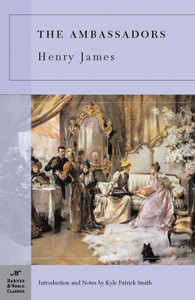The Pilgrim's Progress, by John Bunyan, is part of the Barnes & Noble Classics series, which offers quality editions at affordable prices to the student and the general reader, including new scholarship, thoughtful design, and pages of carefully crafted extras. Here are some of the remarkable features of Barnes & Noble Classics:
New introductions commissioned from today's top writers and scholars Biographies of the authors Chronologies of contemporary historical, biographical, and cultural events Footnotes and endnotes Selective discussions of imitations, parodies, poems, books, plays, paintings, operas, statuary, and films inspired by the work Comments by other famous authors Study questions to challenge the reader's viewpoints and expectations Bibliographies for further reading Indices & Glossaries, when appropriateAll editions are beautifully designed and are printed to superior specifications; some include illustrations of historical interest. Barnes & Noble Classics pulls together a constellation of influencesbiographical, historical, and literaryto enrich each reader's understanding of these enduring works.
Faith, Hope, Mercy, Envy, Ignorance, Guilt: These are not abstract concepts, but the names of vividly imagined, sharply drawn human characters encountered by Christian, the hero of The Pilgrims Progress. In John Bunyans seventeenth-century allegory of the souls search for salvation, each step along the way becomes a dramatic rendering of an inner state of the human psyche. As Christian journeys from the wilderness of this world to the glory of the Celestial City, he confronts a seemingly endless array of temptations, threats, and dangers, including the nearly irresistible allure of material splendor at Vanity Fair; the crushing psychological burden of depression and despair in the Slough of Despond; and the fear and uncertainty that eats away at faith in Doubting Castle.
This edition includes both the first and second parts of The Pilgrims Progress, which collectively reflect the feverish intensity of Bunyans religious beliefs. What remains significant is Bunyans ability to transform this intensity into an allegory that speaks to people of all faiths and all eras.
David Hawkes is Associate Professor of English at Lehigh University. His books include Idols of the Marketplace (2001) and Ideology (second edition 2003), and he has contributed articles to The Nation, the Times Literary Supplement, and the Journal of the History of Ideas.







